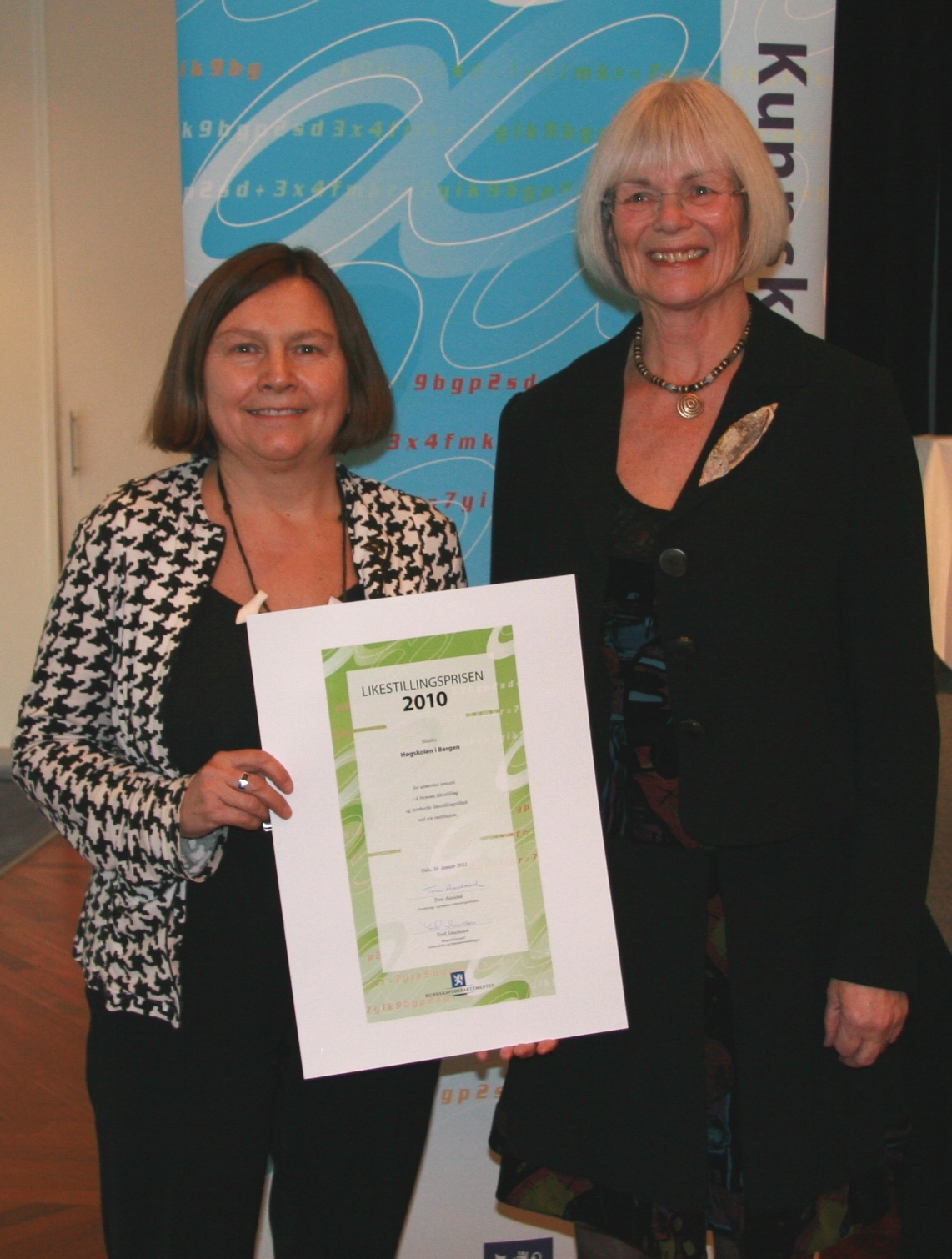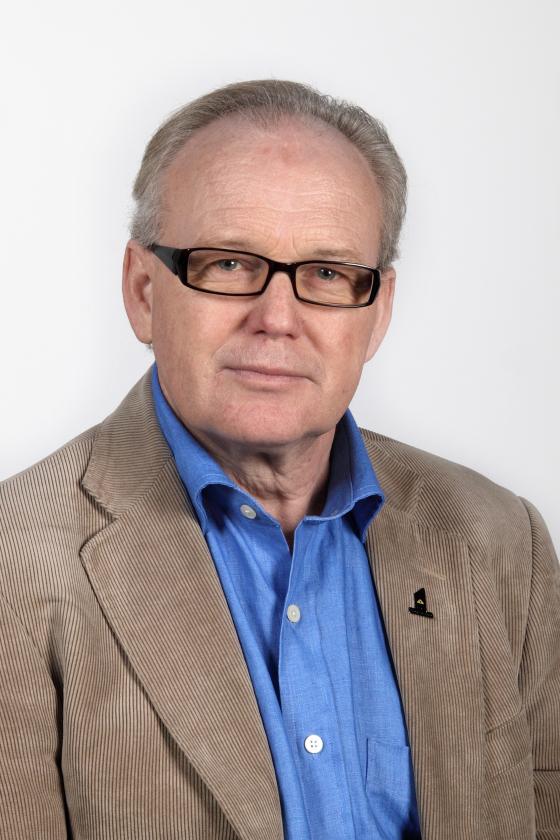Think long term
Gender equality activities are crucial for achieving the ambitious plans to enhance quality and expertise at Bergen University College. Last year the institution received the Gender Equality Award presented by the Ministry of Education and Research, and they are encouraging others to apply for the award this year.
“We have worked with gender equality over many years, and our main focus has been to qualify women for higher position categories,” says Audun Rivedal, Director of Bergen University College. Last year his institution received the Gender Equality Award, worth NOK 2 million, from the Ministry of Education and Research. Rivedal emphasizes that they target their efforts towards female leaders in both the academic and administrative spheres:
“The market determines to some extent how the recruitment pendulum swings, but we’ve made good progress on the proportion of women among both academic and administrative leaders. We have also seen good recruitment of women to research fellowship positions,” says Rivedal.
“How have you used the prize money?”
“The money has gone to competence development and other measures. The focus is on helping employees to obtain professional qualifications so they can be promoted, for example, from lecturer to assistant professor or from associate professor to full professor. The measures also support employees’ participation in leadership development courses held either by our institution or other organizations. If we have women who are close to achieving the highest level of expertise, we use qualifying grants or project funding so they can spend some of their work time obtaining higher qualifications, such as at the full professor level.”
“Do you also use measures like these when men are underrepresented?”
“Yes, we take both sides into account. Women are strongly overrepresented in the Faculty of Health and Social Sciences, and the same is true for men in the engineering sciences, whereas the teacher training programmes are more balanced. This is why we give qualifying grants and project funding to both genders. When we think gender equality, we think about improving the balance between the genders, not only about women.”
Gender balance enhances quality
Rivedal says that Bergen University College has not done much new after winning the award, but continues to focus on qualifying grants and project funding for academic positions. It also offers training for research managers, mainly through courses held by other organizations such as the Research Council of Norway. The institution also plans to look more closely at new recruitment measures to improve the gender balance in individual subject areas in order to achieve the institution’s ambitious plans for the upcoming years:

“We put a lot of effort into gender equality because in our experience a gender-balanced working environment is a better working environment. We also have high ambitions to further develop the institution by enhancing expertise and academic quality in the future, and so we need to mobilize the entire academic staff and leadership. It is therefore important to increase the number of professorships and other positions that require research expertise, and we are working on this in a strategic plan. This is a long-term effort.”
Additionally, the majority of students in the health and social sciences are women, and the majority of students in the engineering sciences are men. Rivedal says they have also implemented measures in those areas:
“As one measure to rectify the situation, we have launched a recruitment campaign to encourage women to pursue engineering studies and men to enrol in pre-school teacher training.”
The recruitment measures apply to academic staff, academic and administrative leaders, and students.
Rivedal appreciates that these measures are noticed, also by those outside of the institution.
“We see that our efforts make a difference and that the work we are doing gets noticed. There’s no doubt that things like the Gender Equality Award are a powerful stimulus for the work that has been done and a good motivation for carrying on. We would absolutely recommend it to others and it is not unthinkable that we would apply again ourselves,” says Rivedal.
“What advice do you have for other institutions that want to promote gender equality?”
“They need address to their own specific situation. We work in particular with recruiting leaders and academic staff, which is in keeping with our overall initiative to enhance quality so we can achieve university status within the next 10 years.”
The application deadline for the Gender Equality Award is Tuesday, 1 November 2011.
Translated by Connie Stultz.
The Gender Equality Award for 2010 was awarded to Bergen University College. According to the assessment by the KIF Committee, Bergen University College demonstrates an action-oriented, well-considered approach to the issue of gender equality in higher education and research.
The committee also stated that gender equality appears to be based firmly in the institutional leadership, noting in particular that the institution:
- integrates its gender equality activities into its usual routines, such as in its general teacher education programme;
- has a high percentage of women in leadership positions at various levels, and also emphasizes the importance of its leaders having expertise in the area of gender equality;
- is one of the few institutions of higher education where publication points are distributed equally between men and women;
- distinguishes itself with its well-rounded action plan and serious initiative to promote gender equality.
The Ministry of Education and Research presents the Gender Equality Award, which has been handed out in 2007, 2008, 2009 and 2010. The prize money is intended to serve as a supplement to the resources that the institutions themselves set aside for their gender equality activities. Minister Tora Aasland has launched the Gender Equality Award for 2011, which will go to the institution(s) or research institute(s) with the best measures for improving the gender balance in the university, university college and research institute sector in Norway.
The Committee for Gender Balance in Research (KIF) is responsible for announcing the award, evaluating the nominees and making a recommendation to the ministry. Information, criteria and guidelines are available at the links below. Applications and attached documentation may be submitted by email to kif@uhr.no.
The application deadline for the Gender Equality Award for 2011 is Tuesday, 1 November 2011.
